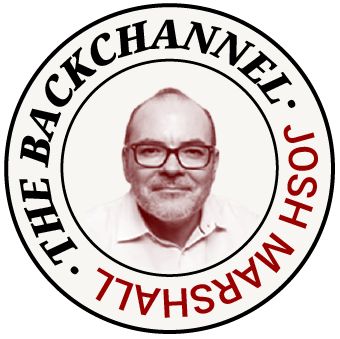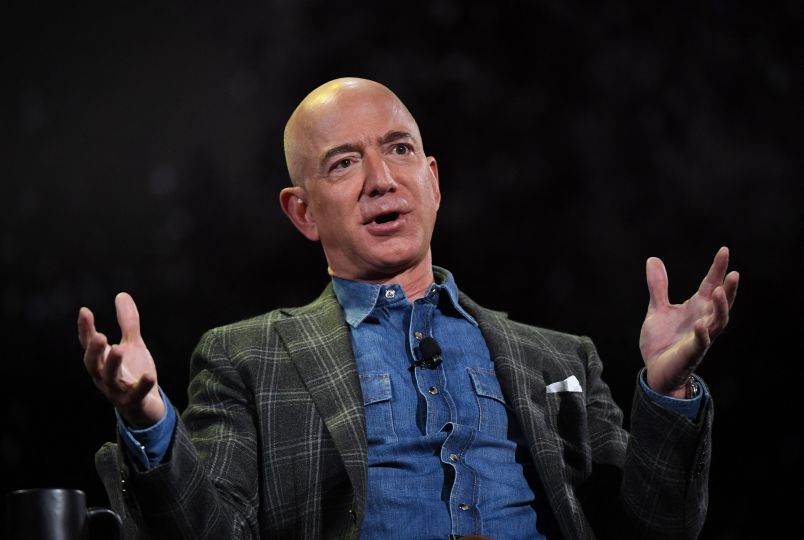NPR reported yesterday afternoon that The Washington Post has lost more than 200,000 subscription in the backlash against owner Jeff Bezos’ last minute intervention ending the Post’s policy of endorsing presidential candidates. That’s a staggering figure, far more than I would have guessed. When I wrote my piece over the weekend, the clearest report was that they’d lost over 2,000 subscriptions. If I understand the numbers right, the Post lost almost 10% of its paying subscribers in a single weekend. Again, a totally stunning and in business terms devastating number — in part because the cancellations appear to continue.
I got some inkling that the damage might be severe when TPM Reader BS emailed me this morning to tell me that after canceling his subscription, he received a special offer to restart his subscription including a link to a new article by Dana Milbank in which Milbank argues that he’s not giving up on the Post and he hopes readers don’t either. If the Post had lost a couple thousand subscribers, that would have been a downer for them and certainly a black eye among news super-consumers and what we might call elite news and politics opinion. (I use “elite” here in a purely descriptive sense.) But it wouldn’t be a huge thing in business terms. And I’d be surprised if the institution itself would address the issue so frontally in the pitches to cancelling members. That’s especially since basically all of the columnists and reporters asking readers not to leave do so while roundly denouncing Bezos’ decision.
It goes without saying that Bezos has that special billionaire’s liberty of being able to choose not to care. The entire Post business is a small operation in the scale of his overall wealth. But in my experience, wealthy people really don’t like losing money, if anything much more than most people. Some are happy to give money away, even very generously. But that’s not losing money. It’s different. In a way it’s hardly surprising. You don’t get to be a billionaire by having an easy-come, easy-go attitude toward money.
In any case, no one is defending Bezos’ decision. I certainly don’t. (See my weekend post for my thoughts on the situation.) But focusing on Bezos’ personal virtues or courage is kind of beside the point. In a pre-Trump era, when civic norms were more or less respected, it might have been viable for a billionaire with large exposure to regulatory and government contracting harassment to own a news organization. But in the Trump era it’s really not. The same applies to large diversified corporations. By definition large corporations have ample exposure to regulatory harassment of various sorts. Most are involved in government contracting of various sorts.
In Bezos’ case he has multiple companies that do extensive government contracting. When Trump was President, Amazon very credibly sued the Trump administration for choosing Microsoft’s cloud hosting service over Amazon’s for a major Pentagon contract. He also owns the Blue Origin space delivery company. Needless to say, Amazon is a walking, talking advertisement for anti-trust enforcement. You may want the DOJ to crack down on Amazon’s practices. But that’s not the point. It’s a massive cudgel hanging over Bezos’ company and wealth.
Bezos addressed many of these issues in the op-ed he published late yesterday in the Post. I found the piece uncomfortable to read. He was refreshingly candid on certain points and he made some good points. Everything I’ve heard about his decade as owner backs up his claim that he’s given the paper complete freedom to report on his various companies. The whole thing was pretty good except for the rather central fact that his explanation for why he made the decision he did was entirely unconvincing. Not even close.
As I noted in an earlier post, I don’t see much point or need for newspaper endorsements. They seem a bit archaic to me. But that doesn’t matter. Aside from Bezos’ unconvincing explanation for his actions, his theory of the case about trust in media is simply wrong. There’s no question that trust in media has eroded, though we shouldn’t forget that that erosion is heavily tilted in partisan terms. But Bezos’ idea is that to the extent people in the news have viewpoints, the way to build trust is to keep those viewpoints under wraps — whether that’s reporters talking on TV or owners and editorial boards expressing opinions in editorials. This strikes me as precisely backwards. To the extent the public has lost trust in media because of perceived bias, hiding viewpoints, which amounts to keeping secrets, or even engaging in a low level of deception is hardly the answer.
Again, I don’t think newspapers need to do endorsements. But stopping them to build trust is silly. If anything, the path Bezos claims to be charting out is one much of media has been on for a couple generations and that just isn’t familiar to Bezos because he hasn’t given serious thought to the media space and its evolution in the political world. It’s simply more of catering to the political side yelling loudest, and most disingenuously, about bias. That just introduces deeper distortions like pervasive “bothsidesism” in news coverage. In any case, the idea that declining trust in news is driven mostly by more biased news coverage or inferior news coverage is probably just wrong. We live in an era of declining social trust that touches the actions of government, the sciences, journalism, education and virtually everything else. This is certainly driven by societal, technological and cultural factors that go vastly beyond the quality of reporting being done by individual news publications.
For all my criticisms of The New York Times, the Sulzberger family is a different thing. Not because they’re personally better. They may be worse. But as far as I know, they don’t really do anything but own and manage The New York Times and other companies owned by the Times which are, to the best of my knowledge, all in the media space. I’m sure they have other investments and wealth. But they don’t own or run other big companies which a President can lash out at.
Of course, a lawless authoritarian government can up the ante way beyond contracts and regulatory enforcement. But a future Trump administration likely doesn’t need to. With someone like Jeff Bezos, it can do all sorts of damage under the general cloak of discretionary authority. There’s no right to a government contract and proving political interference must be quite difficult. Indeed, the way the Supreme Court now interprets the law, it’s not entirely clear to me why the President wouldn’t be at liberty just to overrule a contracting decision because he doesn’t like the owner of the company. In any case, the point is that this isn’t like habeas corpus. You don’t have to go to the mat over bedrock constitutional prohibition. It can all happen pretty much in the open without the targets really being able to prove anything or do anything about it. Just remember Trump’s treatment of CNN and the AT&T merger. Again, all out in the open.
This is actually another part of the conversation about independent media. Usually, when I say independent, I mean outfits like TPM. And let me say: I could not be more proud of the team that produces and runs TPM, the subscriber base that makes it possible (truly, thank you), or the decisions I made over the last 24 years which kept the operation wholly independent. But independence operates at different levels. The Times has an independence of a sort that the Post lacks. This was one point I liked about Bezos’ editorial — he fully recognized this conflicted status. He writes at one point …
When it comes to the appearance of conflict, I am not an ideal owner of The Post. Every day, somewhere, some Amazon executive or Blue Origin executive or someone from the other philanthropies and companies I own or invest in is meeting with government officials. I once wrote that The Post is a “complexifier” for me. It is, but it turns out I’m also a complexifier for The Post.
Yes, it sounds a little ridiculous thinking of the Times as “independent media.” But in this limited way, it has some truth to it. In the Trump era, or any era where civic norms have broken down, that counts.
The most important thing for news organizations of all sizes in this era is that they be independent, by which I mean not chained to other enterprises that are vulnerable either to governmental harassment or even totally legitimate mass actions, like boycotts. They should be responsible to their readers. That also means they should if at all possible make money. Maybe not be super profitable, necessarily, but operate in the black. If you can’t, you tend to need deep-pocketed owners and that often brings the lack of independence that you see with Jeff Bezos. I should also say that I’m not limiting this to for-profit enterprises. The key is solvency. And non-profits, especially if they’re funded by an audience, can do that as well as for-profit operations can.


 Member Newsletter
Member Newsletter
